In this article:
Acne is a widespread skin condition and is a growing cause for concern among people. Being the most prevalent skin problem in the United States, it affects almost 50 million Americans annually. (1)
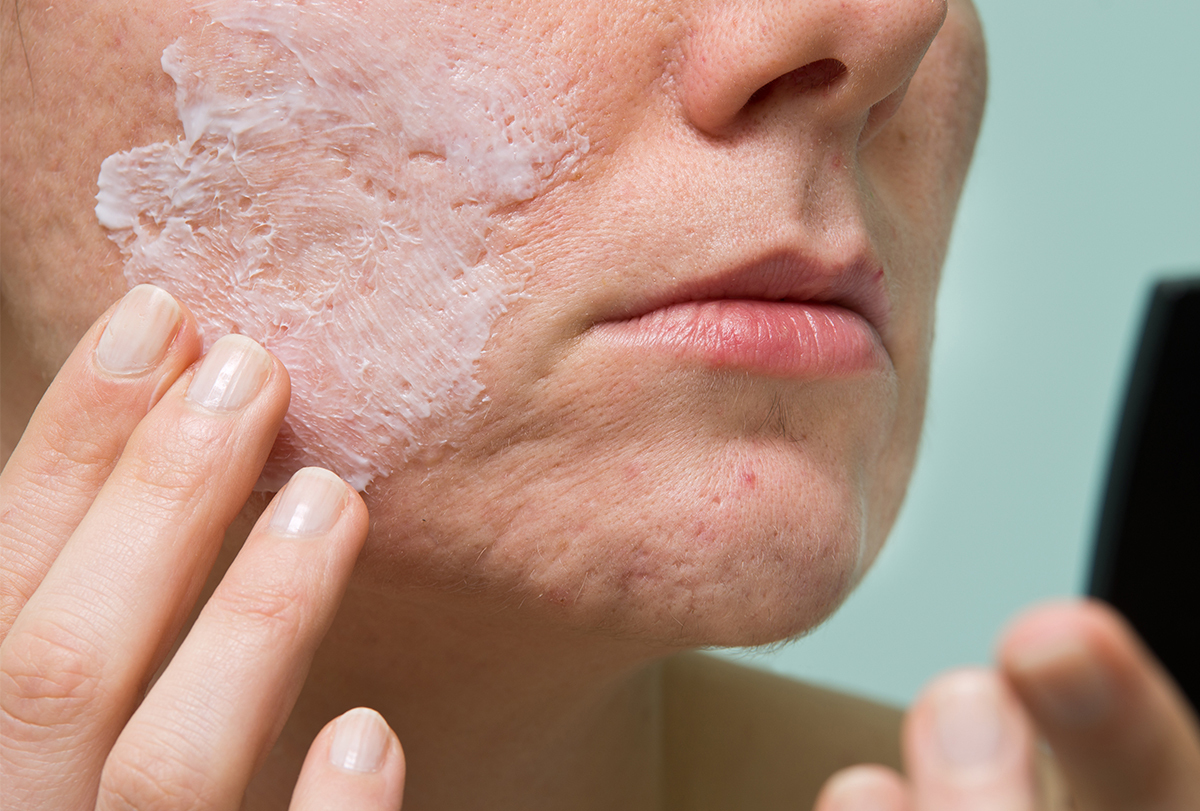
While various products catering to this condition are available, the use of multiple chemical-based products and frequently touching the skin can in fact aggravate acne. What can be helpful for acne treatment is using minimal products devoid of harsh chemicals.
Homemade acne face masks are excellent substitutes for commercially available chemical masks. These can act as natural remedies that not only help nourish the skin but also help subside acne breakouts and related problems such as acne scars.
Preparing Your Skin for a Mask
The most vital step preceding the use of a face mask is to choose one that is fitting for your skin type. It should help in removing dirt, dead cells, impurities, excess oil, and makeup from your face and in improving your skin tone.
The best time to apply a face mask is after getting out of a shower or washing your face as your skin pores are clean and open. After applying and washing off a mask, you may need to apply a moisturizer or toner. Consult a dermatologist for the proper care routine for your skin type.
Note: It is vital to perform a patch test before using the mask to check if your skin is reactive or allergic to any of the constituents, whether the mask is commercial or homemade. Additionally, individuals with highly sensitive skin should seek guidance from a dermatologist before using a homemade mask.
Homemade Acne Face Masks
Here are three easy DIY homemade face masks for acne-prone skin.
1. Apple cider vinegar acne face mask/scrub
Apple cider vinegar (ACV) is obtained by fermenting apples with yeast and bacteria, resulting in an all-natural product. It is necessary to dilute ACV before use, as concentrated forms often lead to mild skin irritation and sometimes chemical burns. To dilute, add 1 teaspoon of ACV in 1 tablespoon of water.
Green tea has anti-aging and anti-inflammatory properties and, therefore, is a beneficial ingredient in a mask for acne treatment. (2)(3) It also helps reverse sun damage. (4)
Honey may aid in softening and soothing the skin, retaining moisture, and regulating pH. Additionally, honey has antimicrobial and tissue repairing properties. (5)(6)
Ingredients:
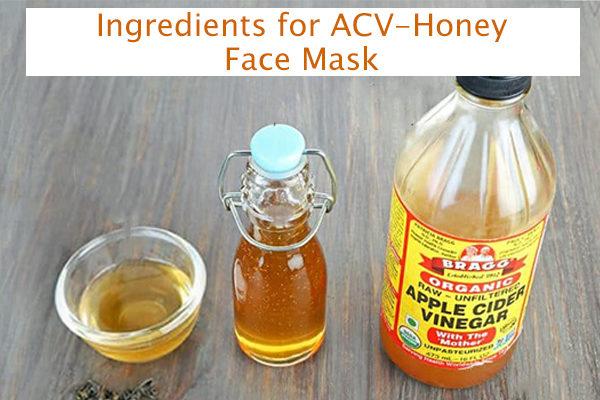
- 1 tsp apple cider vinegar (diluted)
- 2 tsp green tea
- 1 tsp organic raw honey
How to make:
- Put 2 tsp of cooled green tea in a bowl.
- Mix in apple cider vinegar and honey.
- If you prefer a thicker consistency, add sugar.
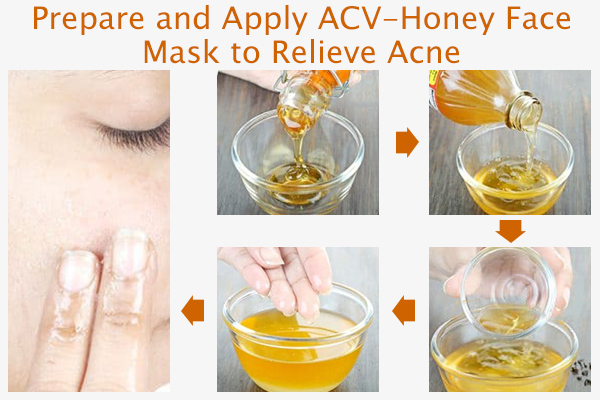
How to use:
- Apply the mask to your face using a cotton pad.
- Massage it in for a few minutes for exfoliation.
- Allow it to dry for 10 minutes.
- Rinse with water.
Use this ACV acne face mask once or twice a week or as advised by a skin care professional. This mask is meant to act as a natural exfoliator and helps in the removal of dead skin cells. It also helps unclog the skin pores and improve circulation.
2. Aloe vera-honey face mask
Aloe vera has been widely used for its beneficial medicinal, skin care, health, and beauty properties. It has antiaging properties and is found to be effective in treating mild to moderate acne. (7)(8)
Yogurt is rich in probiotics, which are bacteria beneficial to your general health. These probiotics have been shown to reduce inflammation. (9)(10)
Ingredients:
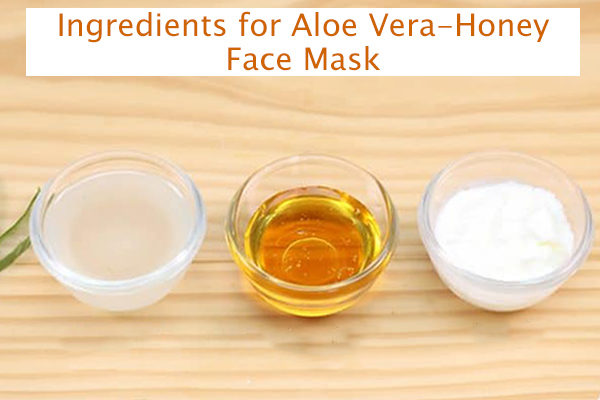
- 2 tbsp aloe vera gel
- 1 tbsp yogurt
- 1 tbsp organic raw honey
How to make:
- Put the aloe vera gel in a clean bowl.
- Add the organic raw honey and yogurt.
- Mix well to form a paste using an electric blender, if necessary.
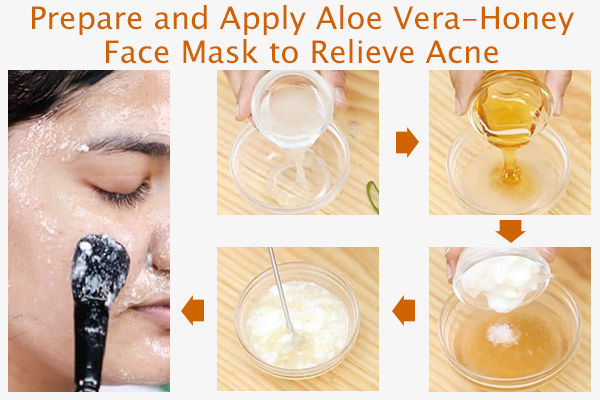
How to use:
- Wash your face and pat it dry.
- Apply the mask to your face using an applicator brush.
- Allow it to dry for 10–15 minutes.
- Rinse with cold water.
Use this mask up to three times per week or as advised by a skin care professional.
3. Clay and Indian lilac oil face mask
Clay provides several minerals to enrich your skin and has antibacterial and antimicrobial properties. (11)
Witch hazel has highly potent medicinal properties and is rich in tannins. The topical application of witch hazel has been shown to provide anti-inflammatory properties. (12)
Note: Witch hazel is not recommended for children under 12 years of age.
Neem is an essential ingredient of many Ayurvedic medicines, and its oil may provide antibacterial properties that may help with acne. (13)(14)
Note: The topical use of neem oil is generally considered safe, but most studies with neem oil have been cell or animal-based.
Ingredients:
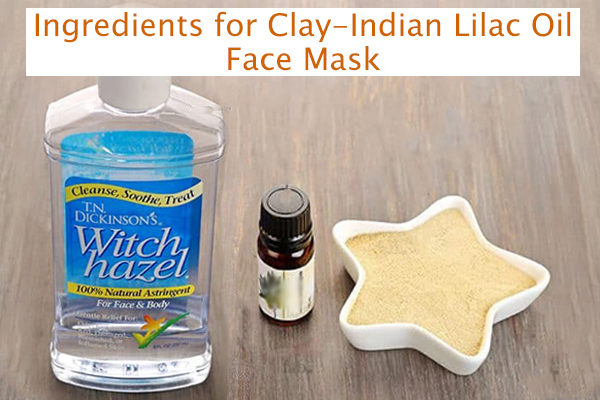
- 1 tbsp clay
- Witch hazel, as needed to form a paste
- 1–2 drops neem essential oil
How to make:
- Put the clay into a bowl. You can use any clay depending on availability, but bentonite clay is usually regarded as best for acne-prone skin.
- Add witch hazel, enough to form a thick paste.
- Add 1–2 drops of neem essential oil.
- Mix well to form a paste.
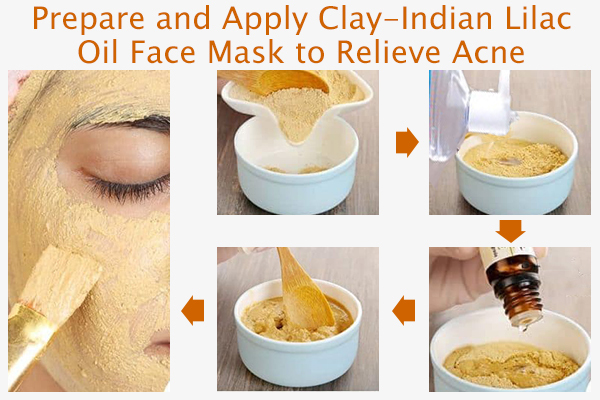
How to use:
- Apply a layer of the mask to your face.
- Allow it to dry for approximately half an hour.
- Rinse with cold water.
- Pat your skin dry using a soft cloth.
Use this DIY mask once a week or as advised by a skincare professional.
Individuals with sensitive skin may need a shorter time for keeping the mask on. If you are on any skin medication or have sensitive skin, consult your dermatologist before use.
Additional Care Tips for Acne
- Do not touch or pick your acne spots.
- Set up a daily skin care regimen.
- Refrain from using a face mask if you have a cut or scratch on the face.
- Remove your makeup before sleeping.
- Practice stress management techniques.
- Take measures to prevent damage from the UV rays of the sun.
- Seek the guidance of a dermatologist or skin health professional.
Final Word
Face masks are aimed at exfoliating, rejuvenating, and smoothening your skin. Since the skin on your face is comparatively more sensitive than that of other body parts, it is important to test facial products on a small patch of skin before using them.
If the acne persists or aggravates despite proper skin care, it is best to consult a dermatologist for any underlying problems that may be present.
- Was this article helpful?
- YES, THANKS!NOT REALLY


